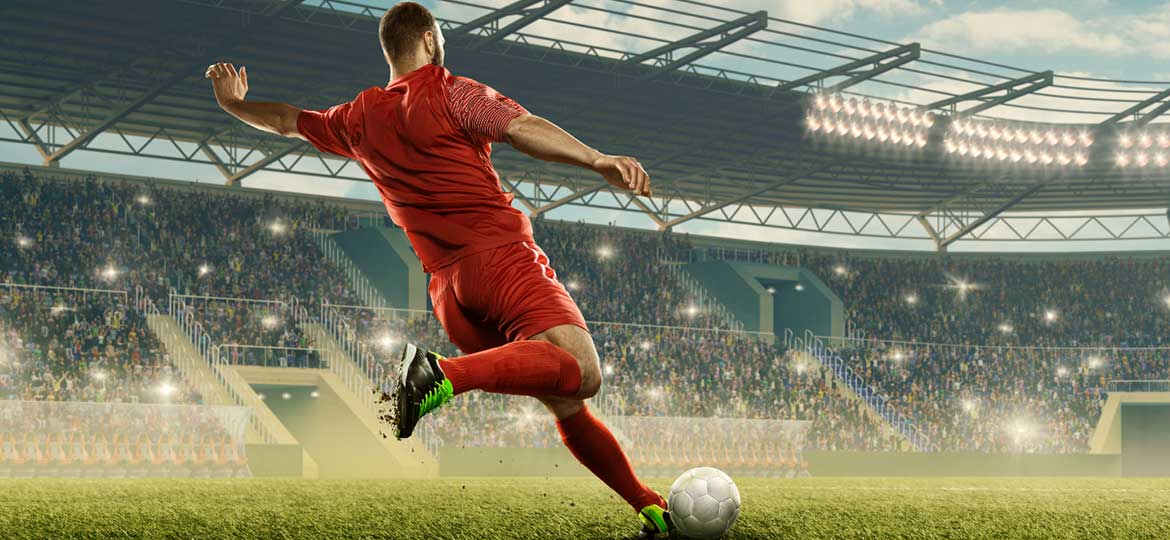Exploring Sports Psychology: The Role of Mental Training in Sports

Elite athletes dedicate 80% of their success to mental preparation, but many focus only on physical training.
Sports psychology fills this significant gap between physical capability and mental performance. Athletes can understand how their mindset affects performance and learn ways to train mentally for better results. The field combines psychology and sports science principles that help athletes discover their full potential.
A sports psychologist partners with individual athletes and teams. They apply proven techniques to develop mental toughness, control competition anxiety and sharpen focus. Mental training tools have become vital for athletes across all levels – from youth sports to professional competitions. Athletes learn to use their mental strength through systematic psychological training. This leads to better performance and more enjoyment of their sport.
Our Calgary Therapists That Provide Sport Psychology Counselling and Therapy
Murray Molohon
Registered Psychologist
English
Jarret Verwimp
Clinical Canadian Certified Counsellor
English, French, Spanish (basic)
Understanding Sports Psychology Fundamentals
Sports psychology has grown into a unique field that looks at how our minds affect athletic performance and well-being. The American Psychological Association sees sports psychology as a skill that helps achieve peak performance, supports sports development, and tackles systemic problems in sports settings [1].
Definition and Core Concepts
Sports psychology blends insights from psychology, biomechanics, physiology, and kinesiology. This blend helps us learn about how our minds affect sports performance and how playing sports shapes our mental health [2]. The field includes performance improvement, athlete wellness, and the social side of sports.
Historical Development and Evolution
This field’s roots go back to the late 1800s. Norman Triplett ran the first sports psychology research in 1898 and found that cyclists did better when they rode with others [3]. A big breakthrough came in 1925 when Coleman Griffith set up America’s first sports psychology lab at the University of Illinois [1]. The 1960s saw rapid growth with new organizations forming, like the International Society of Sport Psychology in 1965 [1].
Key Theoretical Frameworks
Today’s sports psychology works through several key approaches:
Cognitive-Behavioral Foundations: These show how thoughts shape athletic behavior
Social-Historical Framework: This looks at cultural and developmental parts of sports
Psychobiological Model: This connects mental factors with physical performance [4]
The field now covers specialized areas such as:
Sport-specific psychological assessment
Mental skills training to improve performance
Clinical and counseling support for athletes [1]
The Science Behind Mental Training
Recent neuroscience breakthroughs have uncovered the deep connection between mental training and athletic performance. Research shows that cognitive-behavioral therapy has produced remarkable results to boost mental skills and emotional control in training plans [5].
Neurological Basis of Performance
Athletes at expert level show higher neural efficiency with lower activity in their sensory and motor cortex while they perform better than others [6]. This efficiency shows up as reduced activation where tasks are executed and less deactivation in brain areas that process irrelevant information [6].
Cognitive-Behavioral Foundations
Cognitive-behavioral interventions look at how thoughts, behaviors, and feelings work together when responding to environmental stimuli [5]. These interventions work well to:
Boost motivation and mental focus
Build self-confidence and emotional control
Build better stress management skills
Make sports performance methods better
Performance Psychology Research
Meta-analyzes reveal that psychological techniques that boost performance show a moderate beneficial effect (d = 0.51). Factors that hurt performance have a small negative effect (d = -0.21) [7]. Mental training protocols work best to improve stress management and performance evaluation [5].
Science tells us that psychological training directly shapes athletic development by boosting skills and creating better coping strategies [5]. Research has shown that psychological training helps improve motivation, concentration, and self-confidence. These improvements become even more powerful when combined with physical and technical training programs [5].
Building Mental Toughness in Athletes
Mental toughness is a vital psychological skill that helps athletes deliver consistent performance under pressure. Research shows that mental toughness is not inherent. Athletes can learn and develop this skill through systematic training and experience [8].
Resilience Development Strategies
Athletes build resilience by learning to overcome challenges. Studies show that sports resilience comes from facing and conquering tough situations repeatedly [9]. Sports psychologists guide athletes to develop this skill through:
Performance visualization techniques
Systematic stress exposure training
Progressive challenge management
Structured recovery protocols
Confidence Building Techniques
Building confidence needs a clear plan that looks at past wins and future readiness. Research shows athletes who track their successful performances bounce back better when new challenges come up [8]. Sports psychologists help athletes find examples from their past achievements. They create a “resiliency resume” that proves athletes can overcome obstacles [8].
Adversity Management Skills
Managing adversity needs specific mental and behavioral responses. Studies show successful athletes follow a four-step process: they control emotions, organize inputs, plan strategy, and execute their planned response [10]. This method helps athletes stay focused and maintain quality performance even during tough challenges. Sports psychologists teach athletes to see adversity as a chance to grow instead of a threat to their performance [11].
Mental Training Techniques for Peak Performance
Athletes who reach the top use specific mental training techniques to perform their best. Sports psychologists point to visualization, goal setting, and ways to improve concentration as the foundations of athletic excellence.
Visualization and Imagery Methods
Athletes get the best results when they use all their senses during mental rehearsal [12]. The best imagery practice has:
Visual elements of performance
Physical sensations of movement
Environmental sounds and feelings
Timing and rhythm of execution
Research shows that an athlete’s brain activates the same regions during visualization as it does in actual competition [13].
Goal Setting and Achievement Strategies
SMART goal-setting gives athletes a clear path and measurable targets. Sports psychologists suggest daily goal-setting practice to build this crucial skill [14]. Athletes need to create specific, measurable objectives and stay flexible enough to adjust their goals based on progress and changing circumstances.
Focus and Concentration Improvement
Athletes can train their concentration to stay at peak performance during competition. Research shows that focused mental practice sessions lasting 30 minutes each day bring the best results [15]. Athletes learn to direct their attention through specific focus types:
Internal focus: Attending to performance elements
External focus: Monitoring environmental factors
Sports psychologists guide athletes to develop these mental skills through well-laid-out training programs. These programs blend visualization, goal-setting, and concentration techniques into daily practice routines [16].
Psychological Skills Training Programs
Sports psychologists must create and evaluate PST programs systematically to match each athlete’s needs. Recent studies show that only 13.9% of clinicians report monthly progress checks [17]. We need better ways to put these programs into action.
Assessment and Baseline Measurement
Sports psychologists use both computer and paper-based tests to get a detailed baseline measurement [18]. These tests show which areas need work and set standards to track progress. The athlete’s complete profile comes from personality tests, sport-specific evaluations, and performance measurements.
Customized Training Protocol Development
A good protocol starts with the athlete’s competition calendar and training phases. Sports psychologists blend PST with the athlete’s overall development plan. They look at:
Pre-season mental preparation requirements
Competition-specific psychological demands
Recovery and maintenance periods
Research shows athletes who follow training programs matched to their genetics see approximately three times the performance improvement compared to those who don’t [19].
Progress Monitoring and Adjustment
Good PST programs use routine progress monitoring (RPM) to track growth and fine-tune their methods. Studies show RPM helps therapists make better clinical decisions and reduces negative treatment outcomes [17]. Sports psychologists track progress through:
Standardized assessment measures
Performance metrics evaluation
Regular athlete feedback sessions
Athletes who keep detailed progress records show better resilience and adapt well to training changes [20]. This organized method helps programs stay effective and builds lasting psychological skills.
Managing Performance Anxiety and Stress
Student-athletes face tough challenges with performance anxiety and stress management. Studies reveal that about 30% of student-athletes feel very overwhelmed during their college years [21]. Sports psychologists have found that athletic pressure combined with developmental stages makes athletes more likely to face mental health issues [22].
Identifying Stress Triggers
Athletes show several stress signs that affect their performance:
Physical symptoms: trembling, increased heart rate, muscle tension
Psychological signs: negative thinking, self-doubt, concentration difficulties
Behavioral changes: sleep disturbances, appetite changes, social withdrawal
Coping Mechanism Development
Studies show that female athletes deal with higher anxiety levels and prefer emotion-focused coping strategies more than male athletes [22]. Sports psychologists guide athletes to build customized coping tools through positive self-talk and cognitive restructuring. Teaching coaches and teammates about support systems helps reduce elite athletes’ stress responses [22].
Pre-competition Mental Preparation
The P.E.R.F.E.C.T. method stands out as a proven framework that helps manage pre-competition stress [23]. Athletes learn to think positively, acknowledge their efforts, and visualize results. People who use these skills handle everyday stress better in other life areas too [23]. Sports psychologists suggest using relaxation tools and mental recovery techniques after major performances to keep psychological health at its best [23].
Team Dynamics and Group Performance
Team dynamics play a significant role in sports psychology, as individual athletes’ interactions shape how the team performs together. Research shows that effective team coordination depends on systematic communication among team members about game plans, roles, and responsibilities [24].
Leadership Development
Athletes who take leadership roles, both formal and informal, substantially affect their team’s functioning and effectiveness. Research reveals that team leaders positively affect team cohesion, satisfaction, and motivational climate [1]. Sports psychologists help build leadership skills through well-laid-out workshops that emphasize training, democratic behavior, and positive feedback techniques [1].
Team Cohesion Strategies
Team cohesion predicts performance success. Research shows that cohesion takes two distinct forms:
Task cohesion: Unity in performance and goal achievement
Social cohesion: Interpersonal bonds and team relationships
Teams with quality leadership show stronger shared purpose, better goal commitment, and improved confidence in their abilities [1].
Communication Enhancement
Successful team dynamics depend on effective communication. Research shows that teams need efficient coordination of shared knowledge backed by strong two-way communication [24]. Sports psychologists aid communication improvement through structured debriefing sessions, video analysis, and non-verbal signal development [24]. Teams that encourage open communication show better motivation and perform well under challenges [25].
Youth Athletes and Mental Development
Youth athletes need special attention because children and teens develop at different rates. This affects how we implement mental training [26]. Research shows that mental fitness is as necessary for success in sport as physical fitness or technical comprehension [27].
Age-Appropriate Training Methods
Sports psychologists have found that youth athletes aged 10-14 show more interest in their peers. They can think more abstractly too [26]. Training methods should match these developmental stages. Practitioners can ask questions that help athletes find answers on their own through discovery-based learning.
Parent-Coach Education
Research shows that parent-coach interactions substantially affect how young athletes develop [28]. The most effective approaches focus on teamwork and building on strengths. These approaches put athlete enjoyment first and encourage long-term participation. Parents and coaches who build positive relationships create spaces that encourage mental wellness and lower burnout risk [29].
Long-term Athletic Development
The Long-Term Athletic Development (LTAD) model gives us a well-laid-out framework for youth athlete development. Key stages include:
Active Start (Ages 0-6): Developing fundamental movement skills
FUNdamentals (Ages 6-8): Building ABC’s of athleticism
Learn to Train (Ages 9-12): Refining sport-specific skills
Training to Train (Ages 12-16): Introducing competition elements [30]
Children need to develop basic motor skills by age 12. Research shows those who don’t might never reach their full athletic potential [31]. Sports psychologists stress the importance of environments that support both better performance and psychological well-being, especially during key developmental stages.
Technology and Innovation in Sports Psychology
Technology has brought powerful tools that measure and boost athletic mental performance. Sports psychologists now use these breakthroughs with precise methods to track and improve psychological states during training and competition.
Biofeedback and Neurofeedback Applications
Athletes started using biofeedback training in the late 1960s to control their physiological responses [32]. Modern biofeedback systems track heart rate, muscle tension, brain wave activity, and skin temperature immediately [33]. Research shows athletes can measurably improve their brain wave adjustments to meet specific performance goals after two weeks of neurofeedback training [34].
Electroencephalography (EEG) has become common in sports, and devices like Versus help athletes worldwide boost their mental game [35]. Athletes can strengthen their brain’s physiology through simulations that recreate high-pressure competitive situations.
Mobile Apps and Digital Solutions
Sports psychology tools have become accessible through digital platforms. Popular apps deliver structured mental training programs through six key categories [36]:
Cognitive-behavioral methods
Binaural beats for flow state
Guided meditation
Nature sound therapy
Mindfulness techniques
Breathing exercises
Athletes can control and regulate their stress responses through relaxation techniques with biofeedback devices connected to mobile applications [37]. Virtual reality creates immersive environments for psychological conditioning that help athletes develop mental resilience and decision-making skills in controlled settings.
Conclusion
Sports psychology is the life-blood of modern athletic achievement that connects physical capability with peak performance. Research shows mental preparation affects competitive outcomes by a lot in sports at every level.
Here are the detailed aspects that make sports psychology so powerful:
Scientific proof that mental training boosts athletic performance
Proven ways to build mental toughness and handle competition stress
Methods to build team unity and develop leaders
Training approaches that work best for young athletes
New technology that makes psychological training better
The field keeps growing through research and new tech, giving athletes powerful tools to develop their mental game. Sports psychologists team up with coaches, parents, and the core team to build environments where athletes can excel and stay mentally healthy.
Athletes who combine mental skills training with physical preparation set themselves up to perform their best. Their stories confirm a basic truth – reaching the highest levels in sports needs both mental and physical development.
FAQs
Q1. What is the role of mental training in sports psychology? Mental training in sports psychology is a systematic process that helps athletes develop psychological skills to enhance their performance and well-being. It involves techniques such as visualization, goal setting, and concentration enhancement to improve mental toughness, manage stress, and optimize athletic performance.
Q2. How does sports psychology contribute to team performance? Sports psychology plays a crucial role in team dynamics by fostering effective leadership, enhancing team cohesion, and improving communication. It helps teams develop a shared purpose, stronger goal commitment, and increased confidence in their collective abilities, ultimately leading to better performance outcomes.
Q3. Can mental training techniques be applied to youth athletes? Yes, mental training techniques can be adapted for youth athletes. Age-appropriate methods are used to develop fundamental mental skills, with a focus on enjoyment and long-term participation. Parent and coach education is also emphasized to create supportive environments that foster mental wellness and reduce burnout risk.
Q4. How are technological innovations being used in sports psychology? Technological innovations in sports psychology include biofeedback and neurofeedback applications, which help athletes gain control over their physiological responses. Mobile apps and digital solutions offer structured mental training programs, while virtual reality technology provides immersive environments for psychological conditioning and decision-making skill development.
Q5. What are some effective strategies for managing performance anxiety in athletes? Effective strategies for managing performance anxiety include identifying stress triggers, developing personalized coping mechanisms through positive self-talk and cognitive restructuring, and implementing pre-competition mental preparation techniques. The P.E.R.F.E.C.T. method, which emphasizes positive thinking and result visualization, has emerged as a useful framework for managing pre-competition stress.
References
[1] – https://www.frontiersin.org/journals/psychology/articles/10.3389/fpsyg.2022.820745/full
[2] – https://en.wikipedia.org/wiki/Sport_psychology
[3] – https://www.apa.org/monitor/2008/07-08/sport-psych
[4] – https://university.trainingpeaks.com/introduction-to-sports-psychology-for-endurance-coaches
[5] – https://pmc.ncbi.nlm.nih.gov/articles/PMC9778338/
[6] – https://www.frontiersin.org/journals/behavioral-neuroscience/articles/10.3389/fnbeh.2021.698555/full
[7] – https://pmc.ncbi.nlm.nih.gov/articles/PMC8849618/
[8] – https://www.peaksports.com/sports-psychology-blog/how-to-overcome-adversity-for-athletes/
[9] – https://pmc.ncbi.nlm.nih.gov/articles/PMC9811683/
[10] – https://simplifaster.com/articles/mental-toughness-resilience-athletes/
[11] – https://www.stack.com/a/high-school-athletes-dont-avoid-learn-how-to-harness-the-power-of-adversity/
[12] – https://appliedsportpsych.org/resources/resources-for-athletes/sport-imagery-training/
[13] – https://www.peaksports.com/sports-psychology-blog/sports-visualization-athletes/
[14] – https://appliedsportpsych.org/resources/resources-for-athletes/principles-of-effective-goal-setting/
[15] – https://www.ittfeducation.com/techniques-of-sports-psychology/
[16] – https://neurotrainer.com/blog/mental-skills-training-for-peak-performance/
[17] – https://pmc.ncbi.nlm.nih.gov/articles/PMC8484366/
[18] – https://www.sportsneuropsychologysociety.com/assessing-the-assessments-baseline-cognitive-evaluations/
[19] – https://pmc.ncbi.nlm.nih.gov/articles/PMC7739422/
[20] – https://pmc.ncbi.nlm.nih.gov/articles/PMC9859147/
[21] – https://untappedlearning.com/effective-strategies-for-managing-stress-as-a-student-athlete/
[22] – https://pmc.ncbi.nlm.nih.gov/articles/PMC10687549/
[23] – https://wexnermedical.osu.edu/blog/perfect-method-reduces-athlete-stress
[24] – https://www.researchgate.net/publication/254327541_Getting_Them_on_the_Same_Page_Strategies_for_Enhancing_Coordination_and_Communication_in_Sports_Teams
[25] – https://degree.astate.edu/online-programs/business/master-of-science-sports-administration/communication-in-sports/
[26] – https://pmc.ncbi.nlm.nih.gov/articles/PMC3834981/
[27] – https://sportforlife.ca/portfolio-item/mental-fitness-for-ltad/
[28] – https://www.tandfonline.com/doi/full/10.1080/1750984X.2024.2332986
[29] – https://pmc.ncbi.nlm.nih.gov/articles/PMC6805069/
[30] – https://www.minnesotahockey.org/page/show/718520-long-term-athlete-development
[31] – https://athletics.ca/wp-content/uploads/2015/01/LTAD_EN.pdf
[32] – https://psycnet.apa.org/record/2015-47063-041
[33] – https://www.therapp.io/biofeedback-for-sport-and-performance-enhancement/
[34] – https://biofeedback-neurofeedback-therapy.com/bfb-for-high-performance-in-sports/
[35] – https://cronkitenews.azpbs.org/2018/02/07/new-technology-helping-athletes-mental-game/
[36] – https://restoic.com/pages/mobile-app
[37] – https://gorout.com/sports-coaching-technology/
Calgary Therapy Mental Health Issues
In our Calgary counselling clinic, we help with many mental health problems. Our therapists can assist with a range of issues. These include grief, trauma, anxiety, depression, parenting challenges, PTSD, eating disorders, postpartum depression, fears and phobias, ADHD, self-esteem issues, relationship difficulties, OCD and many more.
No matter what you’re dealing with, our therapists are here to provide evidence-based therapy that fits your needs. We want to help you overcome challenges, build resilience, and find more happiness and fulfillment in your life.




















Calgary Counselling And Psychologist Services
Our Calgary Psychologists and therapists offer counselling and formal psychological assessment services for individuals, couples, and families. We tailor these services to meet the unique needs of each client. Our goal is to support our clients in achieving their personal and relational goals.
We help families improve communication and solve problems. We also offer assessments for learning disabilities and ADHD. Our support extends to various mental health issues. Our support covers many mental health issues.
Our therapists dedicate themselves to providing a safe and supportive environment for clients of all ages and backgrounds. They help clients explore their thoughts, feelings, and experiences. The team is committed to creating a space where clients can feel comfortable and understood. They strive to help clients on their journey towards healing and growth.
We are here to help with individual therapy, couples counseling, or support for your child, teen or family. We offer counseling services in person and virtually. This makes it convenient and flexible for our clients to access our services. Whatever challenges you may be facing, we are committed to guiding you towards healing, growth, and greater well-being.




























